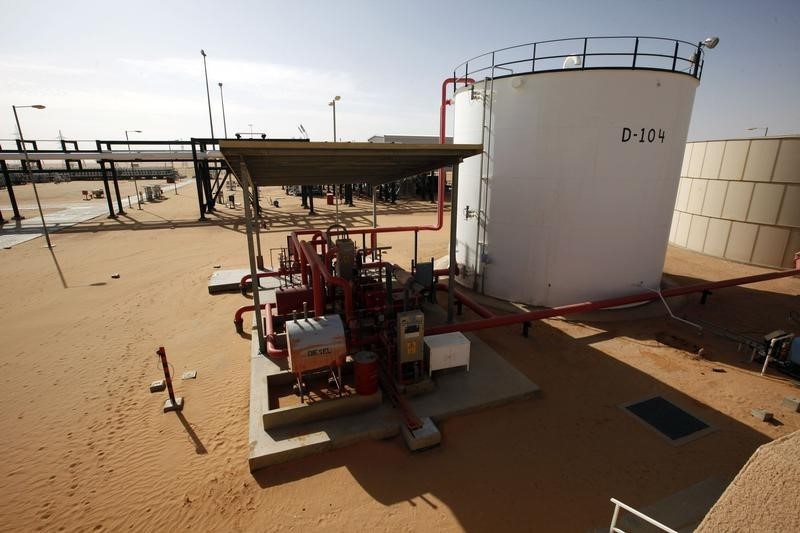* Brent crude recovers from Wednesday's slide below $50
* OPEC cuts began on Jan. 1 but stockpiles still climbing
* U.S. inventories rise faster than expected to record level (Updates throughout, previous SINGAPORE)
By Edmund Blair
LONDON, March 23 (Reuters) - Oil prices climbed off four-month lows on Thursday but the recovery was cautious with investors fretting that OPEC-led supply cuts were not yet reducing record U.S. crude inventories.
Brent crude LCOc1 , the international benchmark for oil, was trading at $50.84 a barrel by 0915 GMT, up 20 cents on the day and rebounding from Wednesday's slide to $49.71, it lowest level since Nov. 30 when OPEC announced plans to cut output.
U.S. light crude CLc1 was up 20 cents at $48.24.
Brent remains well below this year's high above $58, hit shortly after Jan. 1 when the deal between the Organization of the Petroleum Exporting Countries and non-OPEC states to curb supplies by 1.8 million barrels per day (bpd) came into effect.
Global stockpiles have continued rising since then. On Wednesday, data from the U.S. Energy Information Administration showed U.S. inventories jumped by a bigger-than-expected 5 million barrels last week to 533.1 million. EIA/S
While OPEC has broadly met its commitments to reduce output, non-OPEC producers have yet to fully deliver on pledged cuts and U.S. shale oil producers have been pumping more oil after crude prices recovered from last year's drop below $30.
Greg McKenna, chief market strategist at futures brokerage AxiTrader, said OPEC was "underwriting the investment plans and returns of their competition in U.S. shale oil".
He said oil prices could fall further due to U.S. output and a lack of compliance by some producers who said they would cut.
London-based Barclays (LON:BARC) bank offered a more upbeat assessment, saying the latest oil price weakness would not last into the second quarter. The bank forecast a modest recovery.
"We see a rebound to the high $50 and $60 range in Q2 as inventories draw and the market readies for the peak driving and demand season," the bank wrote in a note to clients.
It said inventories held by industrialised nations would be eroded by the end of the second quarter, sliding to OPEC's target level of the five-year average.
